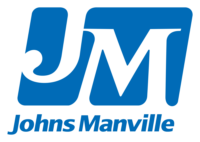Indiana Roof Coatings Manufacturer Plans $13.4 Million Expansion

Photo courtesy Progressive Materials.
NEW ALBANY, Ind. — Progressive Materials plans a $13.4 million expansion for a new corporate headquarters, manufacturing facility, warehouse and more in southern Indiana.
Progressive Materials is a family-owned-and-operated business with local, regional, national and international clients. Founded in 2011, Progressive Materials began production of silicone roof coatings in 2012.
Since that time, the company has seen rapid growth, with revenue exceeding $32 million in 2017, making it the second-largest silicone coatings manufacturer in the U.S.
According to a press release from One Southern Indiana, a regional economic development organization, Progressive Materials is planning the project for the city of New Albany, which is across the Ohio River from Louisville, Ky. (see map below)
“The leadership at Progressive Materials is very excited about the possibility of staying here in New Albany for the company’s continued growth and expansion. The move to a fully-automated, state-of-the-art facility is a huge step for our company and everyone from the state of Indiana, city of New Albany and One Southern Indiana have been incredibly helpful throughout the process,” said Company President Sean Stumler.
The $13.45 million project would create 25 new jobs with an average hourly wage 25 percent above the Floyd County (Indiana) average, according to U.S. Bureau of Labor Statistics.
The 100,000-square-foot corporate campus at the New Albany North Industrial Park is expected to operational by December 2019, according to a press release from the Indiana Economic Development Corp.
In the first two quarters of 2019, Progressive Materials will be hiring electrical technicians familiar with PLC and automation controls as well as operator technicians with strong mechanical backgrounds. Additionally, the company will be searching for chemists familiar with silicone and the roof coatings industry, as well as support staff.
The company is expected to request tax abatements from the city of New Albany for both real and personal property taxes over 10 years and five years, respectively. Tax abatements allow the company to phase in its property taxes over time.
Looking for a reprint of this article?
From high-res PDFs to custom plaques, order your copy today!





